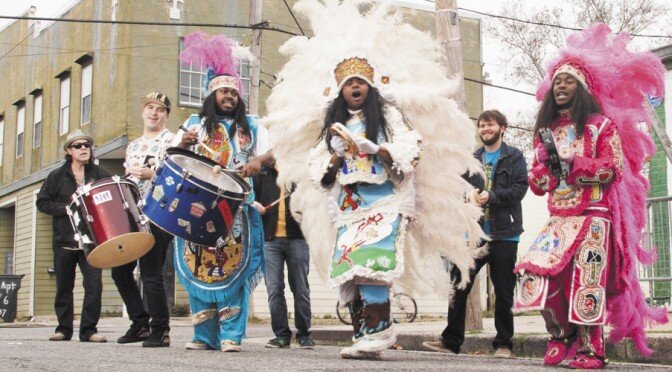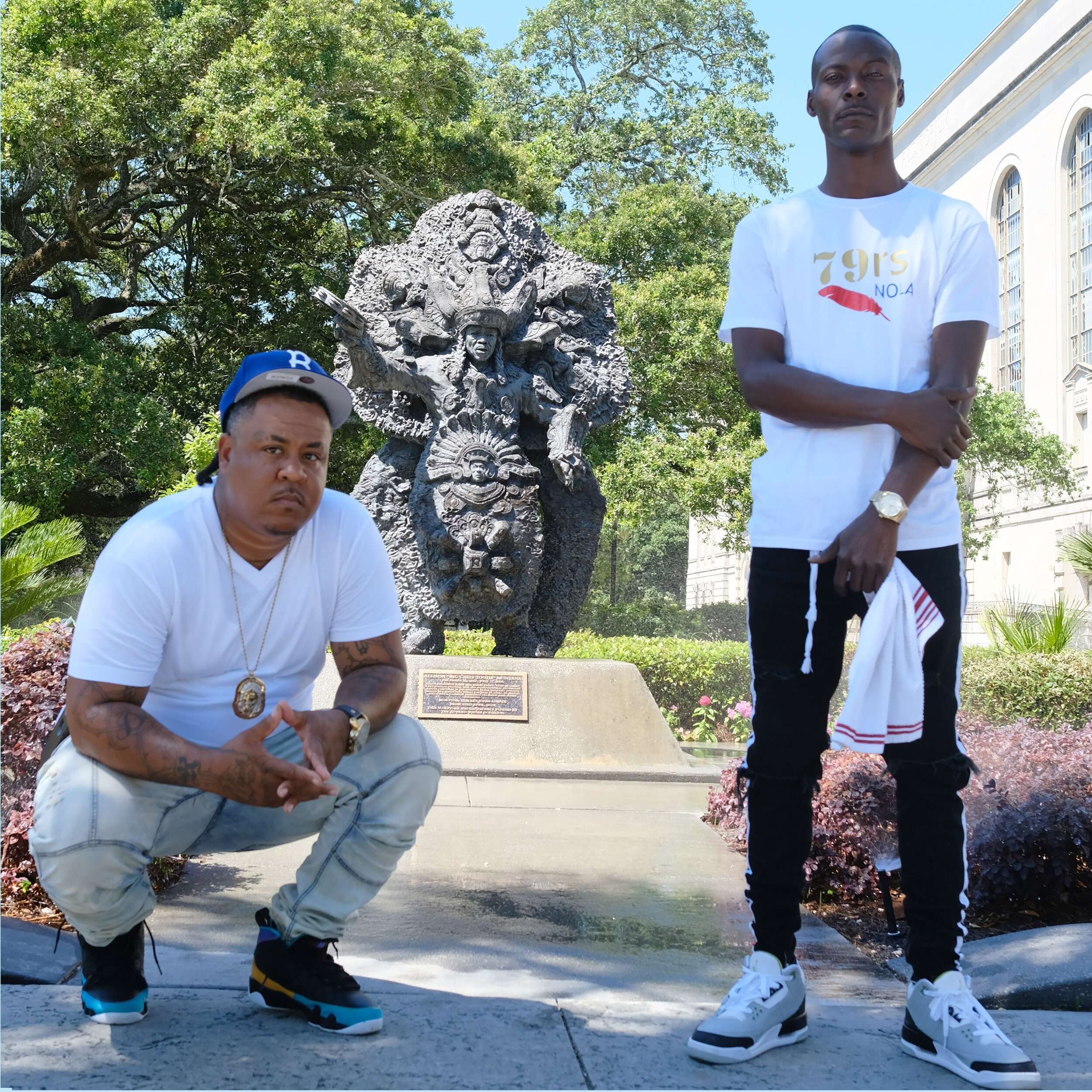Jazz Fest: Cha Wa Hits Refresh on the Mardi Gras Indians Album

"Funk 'n' Feathers" gives the canon a subtle dose of hip-hop and brings a timeless sound up to date.
It’s hard to know what to think of Mardi Gras Indians in 2016. The neighborhoods that spawned them aren’t what they used to be, and many of the figures who dominated the conversation are gone. Listen to long-time Indians talk and they say new Indians don’t respect traditions and are all chiefs, no followers, but it’s hard to know if some of that is standard issue generational grievances. Because Mardi Gras Indians remain an insular community—even today, certainly by 2016’s oversharing standards—it’s hard to be sure of what’s real.
Some of those questions apply to Funk ’n’ Feathers, the new album from Cha Wa (Jazz and Heritage Stage, 4:15 p.m.). As an album, it’s very impressive. A hip-hop sensibility runs through it, more pronounced in some tracks than others. The full band arrangements have enough contemporary life that they remind you that the band was at least part of what made the The Wild Tchoupitoulas and They Call Us Wild by The Wild Magnolias memorable, and that they were fresh in their moment. The band isn’t following either record for a blueprint though, and “Shallow Water” is the most radical reimagining of an Indian standard in recent memory. Its Pink Floyd “Run Like Hell”-ness amps up the song’s sense of foreboding.
At the same time, I wish Big Chief Irving “Honey” Banister and Spyboy J’Wan Boudreaux were more distinctive presences. They’re hardly weak, but they’re not larger than life either. The Meters’ backing was a huge part of what made The Wild Tchoupitoulas album exciting, but Big Chief Jolly was a real vocal presence. He was no Bo Dollis, but his voice had personality—not something I get from Banister and Boudreaux on Funk ’n’ Feathers. The production deals with—or perhaps exacerbates—this issue by periodically processing one of the voices, making it sound like it was coming through a bullhorn. That gives those vocal parts an electronic crackle that connects the album to the moment, and those bullhorned vocals always sound urgent, almost like necessary commentary on the music being made. At the same time, the individuality of the voice is muted by the technology.
It doesn’t help that the album sticks to the Mardi Gras Indians canon, with only the just-fine “Cha Wa Got Fiya” to represent Cha Wa’s additions to the body of songs. It’s fine, but Funk ’n’ Feathers’ reliance on the standards makes it hard for them to stand out.
So am I into Cha Wa? I still don’t know because I’m not sure who they are. But I am into Funk ’n’ Feathers.






